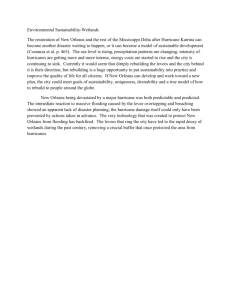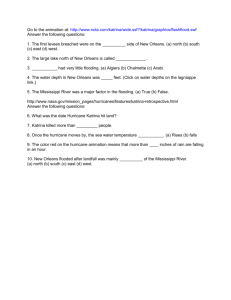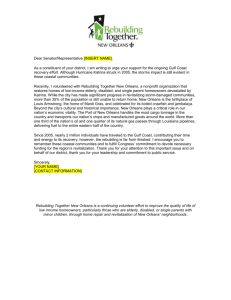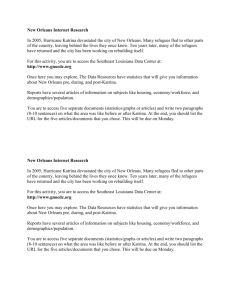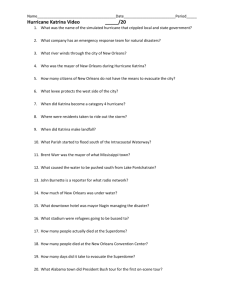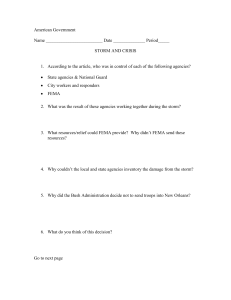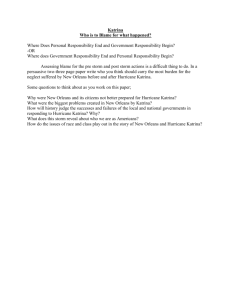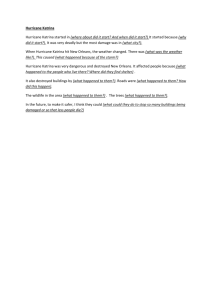HOW ECONOMICS AFFECTS BUSINESS
advertisement
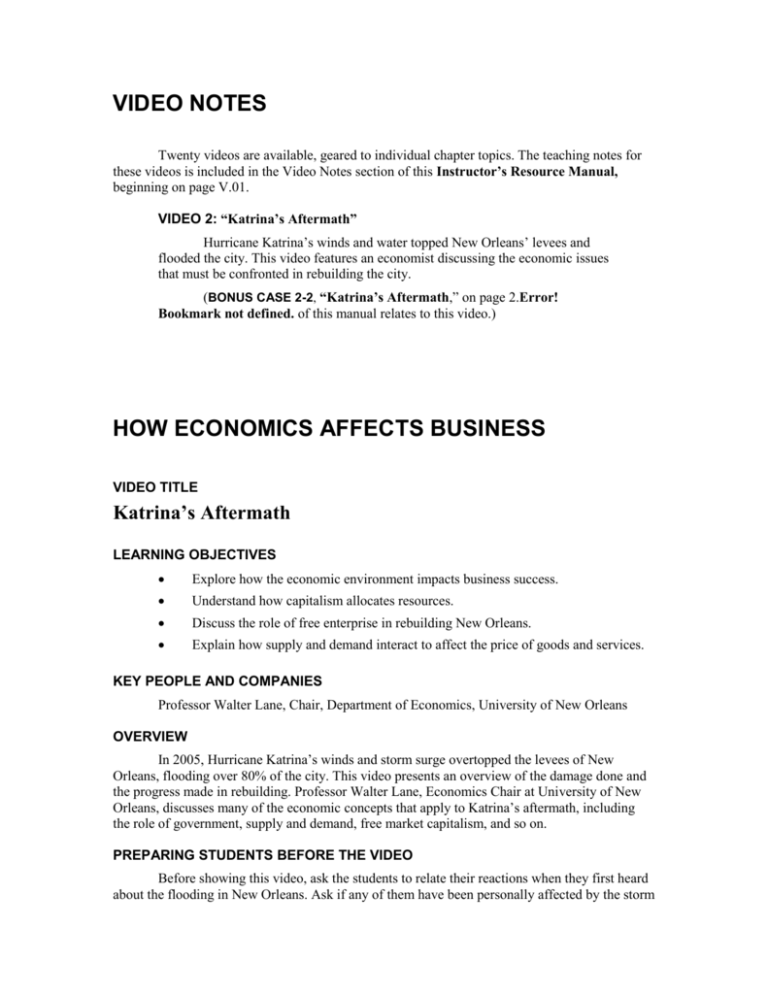
VIDEO NOTES Twenty videos are available, geared to individual chapter topics. The teaching notes for these videos is included in the Video Notes section of this Instructor’s Resource Manual, beginning on page V.01. VIDEO 2: “Katrina’s Aftermath” Hurricane Katrina’s winds and water topped New Orleans’ levees and flooded the city. This video features an economist discussing the economic issues that must be confronted in rebuilding the city. (BONUS CASE 2-2, “Katrina’s Aftermath,” on page 2.Error! Bookmark not defined. of this manual relates to this video.) HOW ECONOMICS AFFECTS BUSINESS VIDEO TITLE Katrina’s Aftermath LEARNING OBJECTIVES Explore how the economic environment impacts business success. Understand how capitalism allocates resources. Discuss the role of free enterprise in rebuilding New Orleans. Explain how supply and demand interact to affect the price of goods and services. KEY PEOPLE AND COMPANIES Professor Walter Lane, Chair, Department of Economics, University of New Orleans OVERVIEW In 2005, Hurricane Katrina’s winds and storm surge overtopped the levees of New Orleans, flooding over 80% of the city. This video presents an overview of the damage done and the progress made in rebuilding. Professor Walter Lane, Economics Chair at University of New Orleans, discusses many of the economic concepts that apply to Katrina’s aftermath, including the role of government, supply and demand, free market capitalism, and so on. PREPARING STUDENTS BEFORE THE VIDEO Before showing this video, ask the students to relate their reactions when they first heard about the flooding in New Orleans. Ask if any of them have been personally affected by the storm and its aftermath. To what degree do they think the city has been rebuilt? In many areas of the country, Hurricane Katrina and the resulting catastrophe have been a watershed event, revealing the limitations of government to deal with national emergencies. Explore the students’ reaction to these events. MAJOR ISSUES IN THE CASE The role of government in handling national disasters. How supply and demand interact to set prices and how environmental changes can shift supply and demand curves. Small businesses and their role in rebuilding New Orleans. Strengths and limitations of free market capitalism. ADDITIONAL DISCUSSION QUESTIONS 1. Are the flooding of New Orleans and the rebuilding effort macroeconomic issues or microeconomic issues? Why? 2. Using the concepts of supply and demand, explain what has happened to wage rates and rent prices in New Orleans. 3. Do you think private enterprise or government should take the lead in the rebuilding process? Why? SUGGESTED ANSWERS FOR DISCUSSION QUESTIONS 1. Are the flooding of New Orleans and the rebuilding effort macroeconomic issues or microeconomic issues? Why? The scale of the hurricane’s devastation was such that it affected the national economy. In the months following the storm, unemployment rates climbed, government deficit spending increased, and energy prices soared. However, the economic impact on individual industries was also profound. Oil drilling increased because of higher gasoline prices. Automobile sales skyrocketed as residents replaced flooded vehicles. So the answer to this question could be either macroeconomic or microeconomic, or both. 2. Using the concepts of supply and demand, explain what has happened to wage rates and rent prices in New Orleans. Because of the storm flooding, large portions of New Orleans’ housing stock disappeared. The remaining houses represented a much scarcer resource. In other words, the supply of housing in the New Orleans area declined dramatically. At the same time, hundreds of thousands of people evacuated the city, many of whom did not return. Businesses trying to reopen needed workers, and there were fewer of these workers available. When the supply of a resource declines and the demand remains constant, or increases, the price these resources command will increase. Thus, the lower supply of housing resulting in higher prices for the available houses, and demand for workers outpaced the local supply of workers, driving up wages. 3. Do you think private enterprise or government should take the lead in the rebuilding process? Why? This debate is at the center of New Orleans’ rebuilding effort. People on one side point to the lack of progress that is being made by relying on private enterprise and the free market. Others argue that in free market capitalism, it is not government’s role to manage the economy. Interesting discussion.
